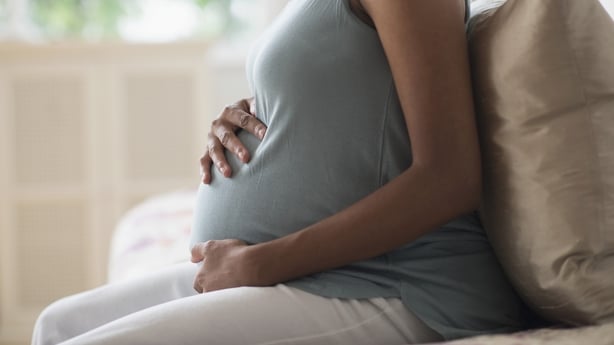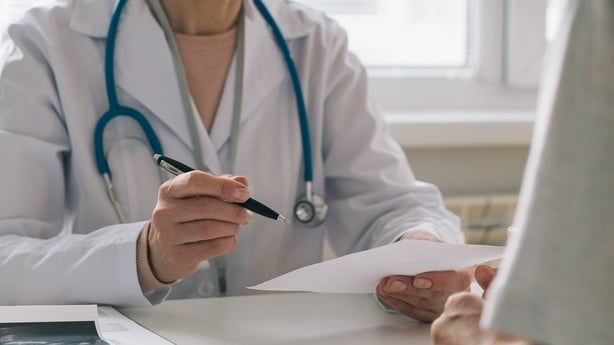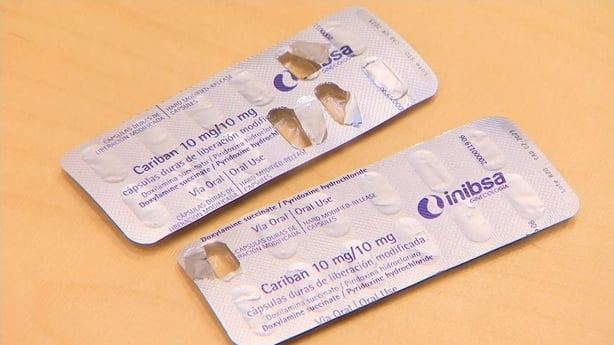New research carried out by TU Dublin has suggested improvements in how hyperemesis gravidarum, or severe morning sickness, should be treated.
The research, which is the first of its kind in Ireland, includes the personal experiences of women affected by severe morning sickness.
The university said women interviewed for the study said there was a need for increased knowledge and understanding and support for hyperemesis gravidarum.
It said a dedicated hyperemesis gravidarum service with obvious clinical leadership and a continuum of care and support throughout the duration of pregnancy and post-partum, improvements to the physical and staffing levels on the day ward, continued access to regular IV fluids and a hyperemesis gravidarum-specific mental health support would improve care.
At a government level, TU Dublin said a timely resolution of the financial assistance for first-line antiemetics would be welcome.
Hyperemesis gravidarum is a debilitating form of nausea and vomiting which can lead to weight loss, dehydration and hospitalisation.
Speaking to the This Week programme, Caoileann Appleby said during her second pregnancy the condition left her so dehydrated that she was admitted to hospital.
But Ms Appleby felt her symptoms were not taken seriously at that time.
"So overall I was off work for about two months and when I went back to work, I was only able to work part time. I had tried four different medications or three different medications and they're still not working. I was not functioning," she said.
"I was not eating or drinking, and I've lost six or seven kilograms. She referred me into the emergency unit for dehydration to see if there was anything else they could do because they can give intramuscular injections – the stuff that the GP can't do.
"Unfortunately, the way I was assessed in the emergency department was that they told me I wasn't dehydrated enough to need any more help, and I also wasn't pregnant when I definitely was. So that was a very difficult experience. I did complain about that and did get a bit of an answer from the hospital which was good."

Ms Appleby said it is hard to describe how draining the condition is and just how awful it is to be that sick all day, every day.
"Unfortunately, it's still you know, a common theme to not be believed. To hear 'well everybody is a bit sick when they're pregnant' or, you know, 'just have some crackers’ and you're thinking, well, I would love to be able to eat crackers. I would love to be able to eat anything," she added.
TU Dublin assistant lecturer in dietetics, Dr Eileen O'Brien, said the research found that women suffering from hyperemesis felt "robbed" of the pregnancy they expected to have.
"We took 11 women who had hyperemesis at the time, or they had recent hyperemesis. Some women said that in order to just get through day-to-day, they needed to take a step back. There were two sides of it. It caused isolation, but it was also nearly a coping strategy for some women as well.

"Other women really talked about how they felt robbed of the expectation of the pregnancy that they expected to have. They really felt that that was completely robbed from them. They ended up with their heads down the toilet, you know, not being able to enjoy the pregnancy at all," Dr O'Brien said.
"What the women came and said to us as part of these interviews was that there seems to be a lack of understanding among healthcare professionals, in the community, with their GPs, some pharmacists, some doctors they met in the hospital and that there was a sort of a lack of understanding about the true difficulties of the condition and that maybe they didn't have the insight that the woman felt was needed to really treat her in the most holistic way possible.
"And they also mentioned that some healthcare professionals they came across may have had a fear of some of the medications. Women said that, you know, they might have been prescribed medications, but then they might go to the pharmacy to pick up the medications where there may have been kind of a discussion around whether, you know, the safety of that medication," she added.
Cariban is the first line of treatment for hyperemesis gravidarum, but access is limited due to the high cost.

It was announced in Budget 2023 that Cariban would be covered by the Drugs Payment Scheme.
But to qualify for the scheme, patients must get their initial prescription from a consultant obstetrician.
"It was really challenging in terms of the financial aspect of, you know, the medications for hyperemesis. It has been some changes in terms of how those first line medications are managed and the cost," Dr O’Brien said. "But there are still some women who are caught in a difficult situation that will still need to be paying those huge amounts just to be able to stay on top of the nausea and vomiting."
Suzanne Murphy needed Cariban during her two pregnancies.
"I did try and work out how much I spent on Cariban. It was definitely in the thousands anyway. I think I did a rough estimate for between the two pregnancies, and it was then around €3,000 which is a huge amount on top of missing work and other kind of financial issues," Ms Murphy said. "I think it should be available to everybody, no matter what their financial status is.
"It should be available on medical card, and it should be available on the drug payment scheme for those that have medical cards. I don't understand why it's not, I mean Viagra is available free."
Dr Aoife Ni Sheaghdha, who works at the Trinity Medical in Coolock Primary Care Centre, said cost should not be barrier to care.
"It is sort of reimbursed, so at the moment, if you're prescribed Cariban and you want to be reimbursed, you have to go to a consultant, and they have to fill out a form. And once that's done the PCR, which is the primary care reimbursement will, reimburse the woman," Dr Ni Sheaghdha said. "The issues with it though. You need to be with a consultant.
"So the women have to go to hospital which obviously places huge burden on them. The hospitals are all overrun as we know."
Dr Ni Sheaghdha added: "Women have to either get a private access to a consultant. We're hearing of women who are still travelling to Spain and other countries in order to get Cariban. As I said, there is precedence for GPs prescribing it.
"Severe morning sickness kicks in at six to 12 weeks so unfortunately by the time you see your consultant at 12 weeks, you've already been paying for it out of pocket with your GP, and it can't be backdated.
"It was October 2022 when the Government announced that there would be a change. Those women are now having their babies, so they haven't been looked after."







